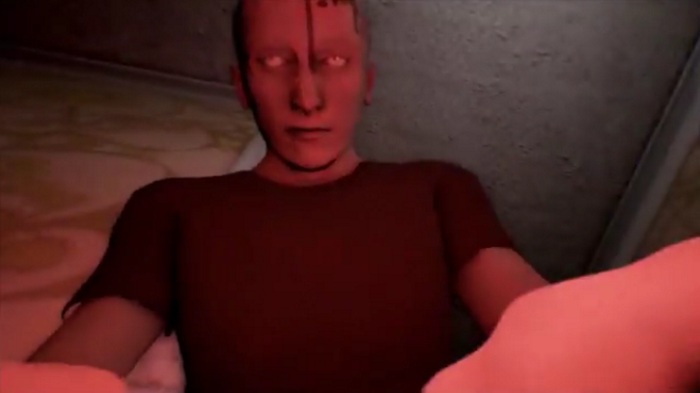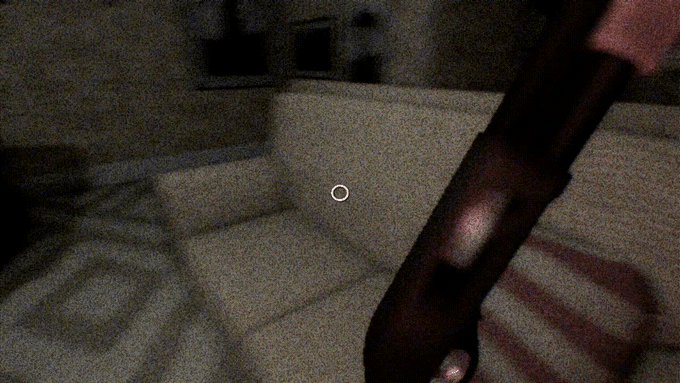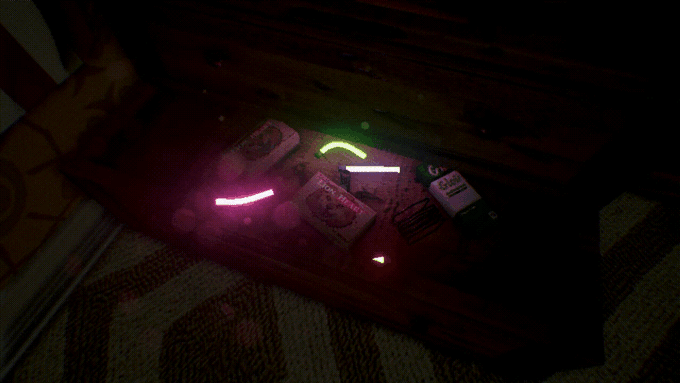Sometimes horror games dabble with a troubling premise or touch on something uncomfortable in their attempt to convey a darker story. Even if the idea is poorly handled some games can be forgiven (or at least given a pass) if the final product is worthwhile. Mad in Heaven is a project that props itself up as a psychological mystery, before promptly sinking to the lowest horror denominator.
The campaign is seeking $9,500 on Kickstarter to create a PC version of Mad in Heaven. The game has already succeeded on Steam Greenlight and there is a demo available. Basically, it ticked enough boxes to be worth checking out when it showed up in the new Kickstarter campaigns. Then things got ugly.
Mad in Heaven tells the story of military veteran, Michael Hill. His stint on the front lines has left him suffering from psychological trauma. Okay, so playing on mental health tropes. Not something I endorse, but it comes up frequently enough that it’s not an automatic deal breaker for me.
“Michael has since been suffering from an extreme case of ‘Hellucinia’, a type of psychological trauma that causes the mind to break from reality and construct an alter ego in order to cope with difficult and unwanted memories, which causes severe hallucinations.”
Hellucinia? What, there weren’t enough mental health issues to stigmatize already? Not only do veterans have to deal with the very real effects of PTSD, now they are purportedly at risk of creating violent alter-egos to act out their hallucinations? This seems like a troubling premise at best, but maybe the gameplay makes up for it? No sorry, it doesn’t.
In Over His Head
The story begins with Michael waking up in what appears to be a dream or yet another hallucination. From there the player has to uncover the secrets of this world while retaining Michael’s sanity. The focus is on survival and exploration with only a “passive” reliance on combat. Naturally, the player is immediately given access to a hunting rifle which they proceed to shoot wildly at the “evil entities” hounding them. Entities, which the game has given us every reason to believe exist solely within Michael’s hallucinations.
Our protagonist has already devolved into a crazed, gun-toting vigilante out to destroy evil he make-believed into existence. It’s like the developer followed a checklist of all the problematic ways video games have dealt with mental health issues and insisted on using as many as possible.
Beating A Dead Trope
There is nothing subtle or nuanced about the story or Michael’s struggle. The game tells us right away that he is crazy and seeing things. This makes him unreliable and possibly dangerous. Usually when a horror game will crutch itself up on mental health, it at least builds into it slowly. The character usually isn’t even aware of it until much later when they realize the consequences of their actions. Even then it’s lazy story-telling, but at least it can sometimes remain compelling. Mad in Heaven just comes across as demonizing at best and mocking at worst.
I’m sure it seems like I’m harping on this one point, while ignoring anything else the game has to offer, but the truth is there isn’t anything else particularly notable. The graphics are the typical Unreal asset pack looking material so prevalent on Steam right now. The mental health premise was all that made this title stand out from the endless hordes of low-budget indie horror games. Sadly, this trope was so poorly handled that Mad in Heaven would have been better off ignoring it and just owning up to it’s own mediocrity.
Abnormal ≠ Evil
It’s not that I think mental health should be off-limits in video games. I think it is a sensitive and nuanced subject that deserves real consideration and examination. What mental health doesn’t deserve is for developers to pigeon-hole it as a simple explanation for anything remotely unusual or worse, dangerous.
Mad in Heaven wants to be a deep psychological game, but refuses to do the work to get there. The demons of mental health are very real, don’t shoehorn them into your lackluster games.






